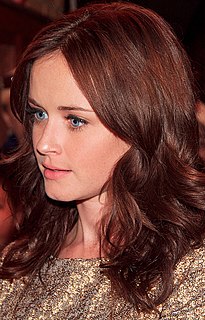A Quote by Friedrich Nietzsche
How far is truth susceptible of embodiment? That is the question, that is the experiment.
Quote Topics
Related Quotes
Suicide may also be regarded as an experiment - a question which man puts to Nature, trying to force her to answer. The question is this: What change will death produce in a man's existence and in his insight into the nature of things? It is a clumsy experiment to make; for it involves the destruction of the very consciousness which puts the question and awaits the answer.
Indeed, while Nature is wonderfully inventive of new structures, her conservatism in holding on to old ones is still more remarkable. In the ascending line of development she tries an experiment once exceedingly thorough, and then the question is solved for all time. For she always takes time enough to try the experiment exhaustively. It took ages to find how to build a spinal column or brain, but when the experiment was finished she had reason to be, and was, satisfied.
How forthright does the audience want the broadcasters to be? Because when you tell your truth, there's a lot of anger that comes out. I think it's a good question to ask TV people [executives] too. How much truth do they want to be told? How much truth does the league want told? Because the truth isn't just a positive truth. If you're going to tell the truth, you would be telling a lot of positive and some negative.
...I think the popular view of Science is a solid body of truth, shared by a whole lot of learned men in a room, all agreeing on the answers to the questions of how the Universe works. Whereas nothing could be further from the truth!!! The one truth that I see emerging from the History of Science is that experiment has always surprised theorists. Einstein included!
It is impossible to devise an experiment without a preconceived idea; devising an experiment, we said, is putting a question; we never conceive a question without an idea which invites an answer. I consider it, therefore, an absolute principle that experiments must always be devised in view of a preconceived idea, no matter if the idea be not very clear nor very well defined.
The TV scientist who mutters sadly, "The experiment is a failure; we have failed to achieve what we had hoped for," is suffering mainly from a bad script writer. An experiment is never a failure solely because it fails to achieve predicted results. An experiment is a failure only when it also fails adequately to test the hypothesis in question, when the data it produces don't prove anything one way or another.
The principle of science, the definition, almost, is the following: The test of all knowledge is experiment. Experiment is the sole judge of scientific "truth." But what is the source of knowledge? Where do the laws that are to be tested come from? Experiment, itself, helps to produce these laws, in the sense that it gives us hints. But also needed is imagination to create from these hints the great generalizations--to guess at the wonderful, simple, but very strange patterns beneath them all, and then to experiment to check again whether we have made the right guess.
Unfortunately, all life on earth - the only life we know - represents, for all its current variety, the results of a single experiment , for every earthly species evolved from the common ancestry of a single origin. We desperately need a repetition of the experiment (several would be better, but let's not be greedy!) in order to make a judgement. Mars represents our first real hope for a second experiment - the sine qua non - for any proper answer for the question of questions.








































